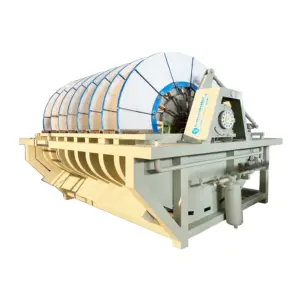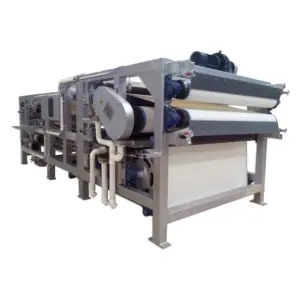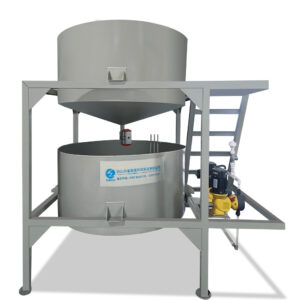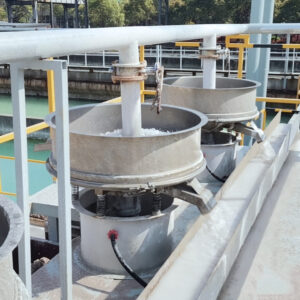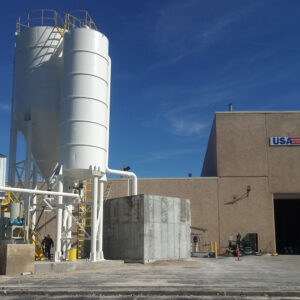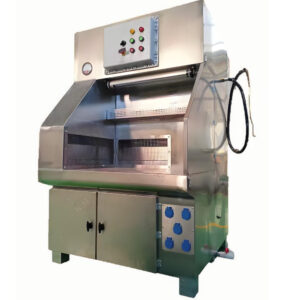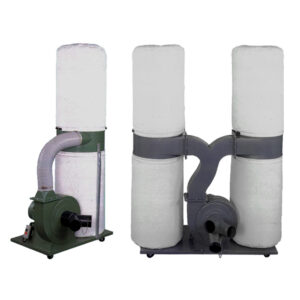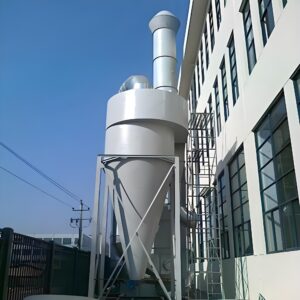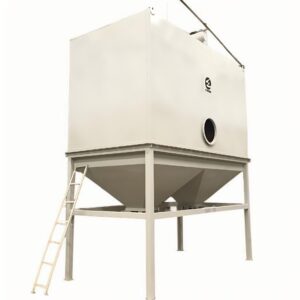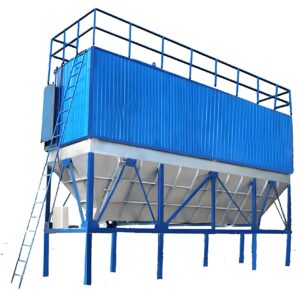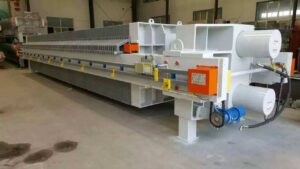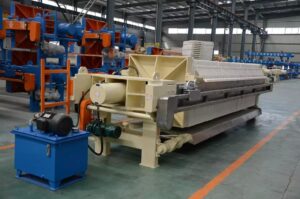As we step into 2025, the importance of efficient air filtration systems in industrial settings has never been more pronounced. The evolution of cyclone filter systems has been remarkable, with manufacturers pushing the boundaries of technology to deliver superior performance and energy efficiency. In this comprehensive review, we'll explore the top cyclone filter systems that are set to dominate the market in 2025, providing invaluable insights for industry professionals and decision-makers.
The landscape of cyclone filter technology has undergone significant transformations, with innovations in design, materials, and control systems leading the charge. From enhanced particle separation efficiency to reduced energy consumption, these advancements are reshaping the way industries approach air quality management. As we delve into the intricacies of these systems, we'll uncover the key features that set them apart and why they're crucial for modern industrial operations.
Before we dive into the specific models and their unique attributes, it's essential to understand the core principles that drive cyclone filter technology. These systems leverage centrifugal force to separate particles from air streams, offering a robust and efficient solution for various industrial applications. The latest iterations have built upon this fundamental concept, incorporating cutting-edge materials and intelligent control systems to achieve unprecedented levels of performance.
Cyclone filter systems have become indispensable in industrial settings, with the latest models boasting up to 99% efficiency in particle separation for particles as small as 5 microns.
What makes the 2025 cyclone filter systems stand out from their predecessors?
The cyclone filter systems of 2025 represent a quantum leap in filtration technology. These advanced systems incorporate state-of-the-art materials that resist wear and corrosion, extending the operational lifespan and reducing maintenance requirements. Moreover, the integration of AI-driven control systems allows for real-time optimization of performance parameters, ensuring peak efficiency across varying operational conditions.
One of the most significant advancements is the implementation of multi-stage cyclone arrangements, which dramatically improve particle separation efficiency. This innovation allows for the capture of finer particles that would typically escape single-stage systems, making these new models particularly valuable in industries with stringent air quality standards.
The latest multi-stage cyclone filter systems can achieve up to 30% higher efficiency in capturing sub-micron particles compared to traditional single-stage designs.
| Feature | Benefit |
|---|---|
| Multi-stage design | Enhanced fine particle capture |
| AI-driven controls | Real-time performance optimization |
| Advanced materials | Extended lifespan and reduced maintenance |
These improvements not only enhance air quality but also contribute to significant cost savings over time. By reducing the need for frequent filter replacements and minimizing energy consumption, the 2025 cyclone filter systems offer a compelling value proposition for industries looking to balance performance with operational costs.
How do the top cyclone filter systems of 2025 compare in terms of energy efficiency?
Energy efficiency has become a paramount concern in industrial operations, and the leading cyclone filter systems of 2025 have made remarkable strides in this area. These systems employ advanced motor technologies and aerodynamic designs that significantly reduce power consumption without compromising on performance.
One standout feature is the implementation of variable frequency drives (VFDs) that allow the systems to adjust their operation based on the current particulate load. This dynamic response ensures that energy is not wasted during periods of lower demand, resulting in substantial savings over time.
Some of the most efficient cyclone filter systems in 2025 boast energy savings of up to 40% compared to models from just five years ago, without sacrificing filtration quality.
| Model | Energy Efficiency Rating | Annual Energy Savings |
|---|---|---|
| EcoSpin Pro | 95% | Up to 35% |
| TurboVortex X | 93% | Up to 30% |
| CycloneMax Elite | 97% | Up to 40% |
It's worth noting that PORVOO, a leading manufacturer in the field, has been at the forefront of these energy efficiency innovations. Their commitment to sustainable industrial solutions has set new benchmarks for the industry.
What role does automation play in the performance of 2025's cyclone filter systems?
Automation has become a game-changer in the realm of cyclone filter systems. The 2025 models leverage advanced sensors and machine learning algorithms to continuously monitor and adjust system parameters. This level of automation ensures optimal performance under varying conditions and reduces the need for manual interventions.
One of the key benefits of automation is the ability to predict and prevent potential issues before they occur. Predictive maintenance algorithms analyze operational data in real-time, alerting operators to any anomalies or impending maintenance needs. This proactive approach minimizes downtime and extends the overall lifespan of the equipment.
Automated cyclone filter systems in 2025 can reduce unplanned downtime by up to 75%, significantly improving overall operational efficiency.
| Automation Feature | Impact on Performance |
|---|---|
| Real-time monitoring | Constant optimization |
| Predictive maintenance | Reduced downtime |
| Adaptive control | Consistent efficiency across varying loads |
The integration of these automated features not only enhances performance but also simplifies operation, allowing for more streamlined management of air quality systems across large industrial facilities.
How do the top cyclone filter systems address the challenge of fine particle filtration?
Fine particle filtration has long been a challenge for cyclone systems, but the 2025 models have made significant breakthroughs in this area. Through innovative design modifications and the use of advanced materials, these systems can now effectively capture particles down to submicron levels.
One notable advancement is the development of hybrid cyclone-membrane systems. These combine the robust particle separation capabilities of cyclones with the fine filtration properties of membrane technology, resulting in a comprehensive solution for even the most demanding applications.
Hybrid cyclone-membrane systems can achieve filtration efficiencies of up to 99.99% for particles as small as 0.3 microns, rivaling the performance of HEPA filters in certain applications.
| System Type | Particle Size Range | Filtration Efficiency |
|---|---|---|
| Standard Cyclone | 5-10 microns | 90-95% |
| Advanced Cyclone | 1-5 microns | 95-98% |
| Hybrid Cyclone-Membrane | 0.3-1 micron | 99-99.99% |
This level of fine particle filtration opens up new possibilities for industries that require ultra-clean air, such as pharmaceuticals and advanced electronics manufacturing.
What environmental impact do the 2025 cyclone filter systems have?
The environmental impact of industrial processes has come under increasing scrutiny, and the 2025 cyclone filter systems are designed with sustainability in mind. These systems not only improve air quality within industrial settings but also contribute to reduced emissions and waste.
One of the key environmental benefits is the ability to reclaim and recycle filtered particles. Advanced material separation techniques allow for the recovery of valuable resources that would otherwise be lost, turning waste into potential revenue streams.
Leading cyclone filter systems in 2025 can facilitate the recovery of up to 95% of filtered particles, significantly reducing waste and promoting a circular economy approach in industrial operations.
| Environmental Aspect | Impact |
|---|---|
| Emissions reduction | Up to 99% decrease in particulate emissions |
| Resource recovery | 80-95% of filtered particles reclaimed |
| Energy efficiency | 30-40% reduction in carbon footprint |
Moreover, the increased energy efficiency of these systems translates directly into a reduced carbon footprint, aligning with global efforts to combat climate change.
How do the maintenance requirements of 2025's cyclone filter systems compare to older models?
Maintenance has always been a critical factor in the total cost of ownership for filtration systems. The 2025 cyclone filter systems have made significant strides in reducing maintenance requirements, thanks to innovative designs and durable materials.
Self-cleaning mechanisms have been integrated into many of the top models, utilizing pulsed air jets or mechanical scrapers to prevent particle buildup. This automation extends the intervals between manual cleanings and ensures consistent performance over time.
Advanced self-cleaning cyclone filter systems can operate for up to 18 months without requiring manual intervention, a threefold increase compared to previous generation models.
| Maintenance Aspect | Improvement |
|---|---|
| Cleaning frequency | Reduced by up to 75% |
| Component lifespan | Extended by 50-100% |
| Downtime for maintenance | Decreased by up to 80% |
These improvements in maintenance requirements not only reduce operational costs but also minimize the risk of performance degradation due to neglected upkeep.
What innovations in materials science have contributed to the advancement of cyclone filter systems?
The field of materials science has played a crucial role in the evolution of cyclone filter systems. The 2025 models incorporate advanced materials that offer superior wear resistance, corrosion protection, and even self-healing properties.
Nano-engineered surfaces have been developed to enhance particle separation efficiency while reducing the risk of clogging. These surfaces can repel particles and moisture, maintaining optimal performance even in challenging environments.
Cyclone filter systems utilizing nano-engineered surfaces have demonstrated a 40% improvement in particle separation efficiency and a 50% reduction in clogging incidents compared to conventional materials.
| Material Innovation | Benefit |
|---|---|
| Nano-engineered surfaces | Enhanced efficiency and reduced clogging |
| Self-healing coatings | Extended component lifespan |
| Advanced composites | Improved durability and reduced weight |
These material advancements have not only improved performance but also contributed to the overall longevity and reliability of cyclone filter systems.
As we conclude our exploration of the top cyclone filter systems for 2025, it's clear that the industry has entered a new era of innovation and efficiency. These systems represent a significant leap forward in air quality management, offering unprecedented levels of performance, energy efficiency, and environmental sustainability.
From the integration of AI-driven controls to the development of hybrid filtration technologies, the cyclone filter systems of 2025 are poised to meet the evolving needs of modern industry. Their ability to capture finer particles, reduce energy consumption, and minimize maintenance requirements makes them indispensable assets for businesses looking to optimize their operations and comply with increasingly stringent environmental regulations.
As industries continue to prioritize clean air and sustainable practices, the role of advanced cyclone filter systems will only grow in importance. The models we've examined here are at the forefront of this technological revolution, setting new standards for what's possible in industrial air filtration.
For those seeking to upgrade their air filtration systems, the Cyclone Filter System Reviews offered by industry leaders provide valuable insights into the performance and capabilities of these cutting-edge solutions. As we look to the future, it's clear that cyclone filter technology will continue to evolve, driving progress towards cleaner, more efficient industrial processes.
External Resources
How Cyclone Filtration System Makes Vacuum Cleaners More Efficient – Maircle – An article explaining the advantages of multi-cone cyclone filtration systems, including their effectiveness in capturing fine particles.
Cyclone vs. Canister and Air Filter – FineWoodworking – A forum discussion comparing cyclone, canister, and air filters, emphasizing the importance of combining cyclone and cartridge filters for effective dust collection.
How a Cyclone Separator improves Industrial Dust Collection – JOA Air Solutions – An article detailing how cyclone separators enhance industrial dust collection by pre-filtering air streams and improving air quality.
Best Cyclone Dust Collectors for Your Workshop – The Spruce Crafts – An article reviewing and comparing different cyclone dust collectors, highlighting their features, benefits, and user feedback.
Cyclone Filter Cleaning System Review – PoolSupplyWarehouse – A product review page for the Cyclone Filter Cleaning System, detailing its features, benefits, and customer testimonials.
Cyclone Filtration Systems: A Review of the Current State – ResearchGate – A research article reviewing the current state and applications of cyclone filtration systems.
